This is the foolproof guide to conducting a successful technical interview. Find out which skills to assess and which key questions to include. Everything you need to know to attract tech talent is in this post!
Given the growing supply and demand for technological jobs in a labor market impacted by digital transformation, technical interviews are becoming increasingly important in recruitment and selection processes.
In a world where innovation marks the present and future of many work sectors, IT talent is living its golden age. But, when it comes to recruiting these profiles, how can we assess their skills and abilities? What questions should be asked in technical interviews? Find all the answers below.
What is a technical interview?
The technical interview is the job interview that allows the evaluation and assessment of a candidate’s technical knowledge and skills. To do so, it can include everything from coding and programming tests to algorithm problem-solving and architecture design, among many others.
This type of selection interview is effective for attracting specific talent in technological areas, such as IT, science, or engineering. However, given the magnitude of technology in all sectors and fields of work, technical interviews are increasingly used in profiles related to sales and marketing, as well as accounting and finance.
In the last 10 years, employment in the technology sector has grown by 47.7%. This figure is double the average recorded in all other sectors, which was 26.4%. Hence, the technical interview is an increasingly essential part of the selection process to attract the best specialists.
Types of technical interviews
There are different types of technical interviews, all of which have the same purpose: to assess the technological skills of a candidate for a position. However, depending on the requirements of the vacancy, certain selection exercises and methods are applied, as well as others.
- Coding exercises: These may include questions on programming language skills such as Javascript or Python, as well as solving code tests.
- Algorithms: allow for the evaluation of the design, analysis and improvement capacity of algorithms to solve problems, and include classification, searches, traversal and dynamic programming.
- Live interviews: candidates must solve practical cases in real-time, sharing the screen with the interviewer.
- Work tests: the candidate profile must include developing a small project as they would do in their workplace.
- Systems design: assesses the profile’s ability to design systems and architectures, taking into account aspects such as performance, security and scalability. They are usually applied in the recruitment of senior-level talent.
- Web development: These include questions about different web technologies such as HTML or CSS, frameworks and browser compatibility, among others.
- Databases and SQL: Assesses skills in understanding and applying data management and design, SQL statements, etc.
Who conducts the technical interview?
There may be several profiles involved in a technical interview; from HR professionals in recruitment and selection, to team members with technical training, such as developers or senior programmer analysts.
It is also possible that recruiting teams have the support of the internal client (the person in charge of the area that requires the hiring of the profile). In this way, both work hand in hand to carry out the technical interview with greater guarantees of success.
What knowledge and skills are assessed in this interview?
Technical interviews assess competencies and skills that allow us to determine the degree of technological mastery of candidates and their ability to solve problems in real work contexts. In this sense, the knowledge that is usually measured is related to areas such as:
- Characteristic terminology of software development.
- Design of systems or architectures.
- Algorithm coding: writing code to solve specific problems, such as those related to data structures.
- Code debugging and optimization: Fixing and improving existing code snippets to make them more efficient.
- Artificial intelligence and machine learning.
- Data science: analysis of large data sources to extract meaningful information.
By analyzing the above-mentioned competencies, selection teams can also assess the ability to develop solutions and overcome technical challenges, as well as the level of critical thinking. Aspects related to soft skills and the fit of the profile with the company culture are also assessed.
How to prepare for the interview
When evaluating candidates with such specific skills, in order to conduct a good technical interview, it is essential to focus on thorough preparation and evaluation. Do you want to know how to successfully interview these types of profiles? Take note of the steps to follow:
Prior preparation
To properly prepare for the technical interview, the following practices should be considered:
- Requirements and evaluation criteria: The first step in developing the questions and exercises to assess the applicant’s talent is clearly identifying the technical skills and competencies required for the position.
- The candidate’s CV: You should review the candidate’s CV and learn in-depth about their experience and motivation for the position. With this information, you can prepare more specific questions and delve deeper into their capabilities.
- Design questions and scenarios that serve as assessment: planning practical cases is a good way to test the profile’s skills and abilities to solve problems in real work environments.
Interview structure
Once we have the technical interview preparation set in motion, it is time to organize its essential parts. To structure it effectively, take note of these guidelines:
- Comfortable environment: creating a welcoming atmosphere and generating trust is essential. To do this, the interviewer can introduce himself and explain the main objectives of the interview. This will help the candidate release tension and feel more comfortable in such circumstances.
- General questions: Starting to ask more open questions provides initial insight into the skills and experience within the profile’s specialty.
- More technical and specific questions: from the more generic questions we would go to questions that evaluate knowledge and experience in more specific topics such as programming methodologies, system design or programming languages. In these questions, we must try to find out aspects such as challenges that the candidate has overcome or projects that he or she has led, going into as much detail as possible.
Evaluation of the candidate
When interviewing a technical profile, it is necessary to be able to evaluate and test their skills. To do this, we will move on to a more practical dimension of the interview, including:
- Specific questions related to the technical knowledge and skills required for the position, whether it be databases, system design, algorithms, programming languages, etc.
- Practical exercises: challenges that serve to assess the profile’s ability to solve problems, such as solving a coding problem or designing a software architecture, for example.
- Examples of previous projects: asking the candidate for their previous work provides a sample of their technical potential in realistic environments.
On the other hand, beyond technical competencies or hard skills, we cannot forget to measure soft skills such as:
- Communication skills : both verbal and non-verbal, through body language, clarity and ability to argue in responses, etc.
- Teamwork skills: This involves assessing your ability to cooperate with other people, practice active listening, and make decisions together.
- Ability to adapt to changes: in a changing labor market, it is key to evaluate the profile’s adaptability to different contexts and situations.
- Problem-solving skills: How the candidate has dealt with more complex situations and overcome significant challenges.
What to ask in a technical interview
In a technical interview, you can do the following:
- Situational questions: How did the profile approach a difficult coding or programming task, or how did they prepare to implement a new technology?
- Questions about experience using tools.
- Questions about knowledge in specific areas, such as artificial intelligence.
- Questions about processes: What steps are essential to designing a given system or architecture, or in what work contexts has the profile applied their experience in Scrum or Agile, etc?
In any case, the type of questions will vary depending on the requirements of the position we need to fill and according to the technical characteristics and level of experience of the profile: junior or senior. Let’s look at each case more specifically:
For junior positions
In technical interviews with junior profiles, it is key to ask questions to determine the candidate’s level of understanding of the fundamentals, their learning capacity, and their attitude. They do not expect much experience, but they can demonstrate problem-solving skills and knowledge of basic concepts. Some examples of questions are:
- How do you debug and optimize a system in use?
- What steps would you take if a program is blocked?
- What programming languages do you have experience with?
- What is your specialization, and in what areas would you like to expand your skills and abilities?
- Could you tell us about a project you have worked on that you are proud of?
- Do you have experience working with any agile methodology such as Scrum?
For senior positions
When conducting a technical interview with a senior profile, the questions should be aimed at testing their high level of technological competence and experience. It is necessary to verify whether the candidate is capable of leading projects, implementing substantial improvements, and making strategic decisions. Some questions that may be asked:
- Could you list the programming languages you have mastered?
- Why is it important for a technical professional to have knowledge of the UX framework?
- What is the largest data set you have ever worked with?
- How do you make code thread safe?
- What significant improvements have you made to your IT infrastructure, and how have you implemented them?
- What guidelines do you follow when studying another developer’s code?
How long does a technical interview usually last?
The technical interview can last approximately one hour or a little longer in certain cases. In addition to this time, there is the prior telephone contact with the candidate, which can last about 15 minutes, and a final test, which can last from 45 to 60 minutes.
In any case, the times may vary depending on the needs of the position, the degree of investigation required by the profile and the methodology used by each selection team and company in question.
Some tips for conducting successful technical interviews
Now that you know what a technical interview consists of, what questions it should include, and what to evaluate, we are going to give you some final guidelines to carry it out successfully:
- Pay attention to candidates who follow new trends and are willing to learn continuously. Technology is a field of study that never stops evolving, so it is important to look for profiles that experiment with programs, participate in conventions, and keep their knowledge up to date.
- Try to ask specific questions , avoiding generalities, since in the technical interview it is essential to be able to prove the ability to solve problems and face challenging projects.
- Assess both the candidate’s problem-solving ability and the quality of the proposed solution.
- Involving the hiring team will help detect the technical skills and level of development required in the candidate profile.
- Define the position and its evaluation criteria precisely to measure competencies and skills objectively and specifically.
- Include practical exercises and tests that assess skills in real work environments.



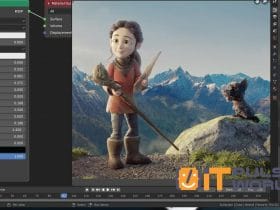
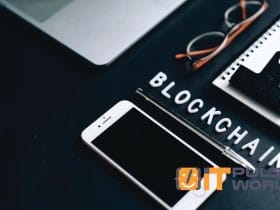
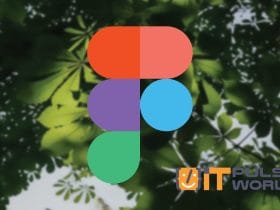
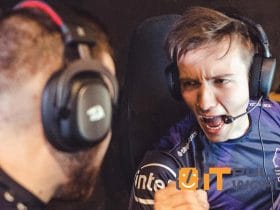

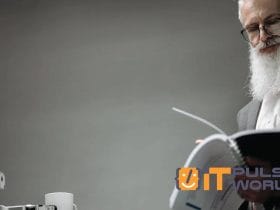


Leave a Reply